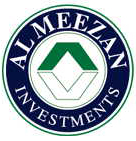| |
As home to most of the $24 billion worth of sukuks listed worldwide during the past five years, Dubai needs to have more market-makers to create a vibrant secondary market to sustain its leadership in Islamic finance, financial experts said.
Dubai, facing increased competition from Bahrain, Riyadh, Singapore, Kuala Lumpur and London as a centre of Islamic finance, should encourage institutional investors who own a large chunk of the sukuks to come to the secondary market to make it active.
"With a market-making mechanism in place, Dubai can facilitate more liquidity in sukuk trading," they said.
"What is happening on Dubai International Financial Exchange is that institutions which had bought most of the previous sukuk issues tend to hold on to the paper rather than trade it. This trend has to change and authorities should encourage them to trade sukuks to ensure market vibrancy," experts said.
Recently, London took a significant step towards becoming a global centre for Islamic finance by establishing the world’s first secondary market for trading sukuks. The city also announced plans to extend its capital gains tax principles to accommodate Islamic bonds by allowing issuers of Islamic bonds in the UK to offset the coupon payments they pay to investors against company profits for tax. At present, an issuer of a non-Islamic bond can offset the coupon interest payment against profits, but an Islamic bond does not qualify for this relief as the coupon payment is based on profit rather than interest and profit cannot be offset against profit.
According to estimates, the number of trades in London’s sukuk market rose from a trickle in December to about 1.5 billion euros in January, spurred on by the world’s largest sukuk bond issue of $3.52 billion from the Nakheel Group in November.
"London faces competition from places such as Bahrain, Dubai, Riyadh, Singapore and Kuala Lumpur as a centre of Islamic finance. There are more sukuks listed in Dubai than anywhere else, although it is yet to establish a secondary market," according to Financial Times.
Over the past few years there has been a dramatic growth in the use of Islamic finance techniques in raising capital that complies with the requirements of Shariah law.
Standard & Poor’s estimates that the market for Islamic financial products, which include retail banking services, mortgages, equity funds, fixed income, insurance, private equity, and derivatives, is worth $400 billion. The market is estimated to have grown 15 per cent annually over the last three years, a rate that seems sustainable given Gulf investors’ accumulating reserves and Western banks’ search for high-growth markets, according to a Dubai-based investment analyst.
"The excess liquidity currently being pumped into Gulf economies will continue to spur the growth of sukuk market. As the market is developing rapidly and the jurisprudence from the Islamic scholars is becoming more settled, the issue costs for a sukuk structure continue to fall. The Trust Certificate Issuance Programme established by the Islamic Development Bank (IDB) in May 2005 marks a key step in the development of the sukuk market with the IDB able to use some of the financial assets on its balance sheet to underpin sukuk issues under a medium term note like programme structure," one Islamic finance expert pointed out.
He said there will be continued strong growth in the sukuk market as there is increasing standardisation of sukuk documents in the marketplace which will drive costs down and improve |








